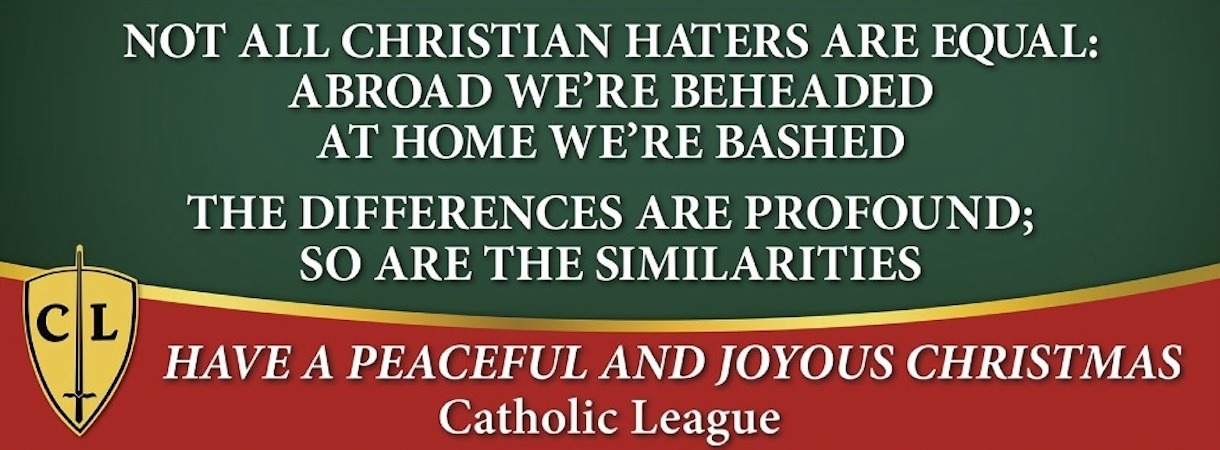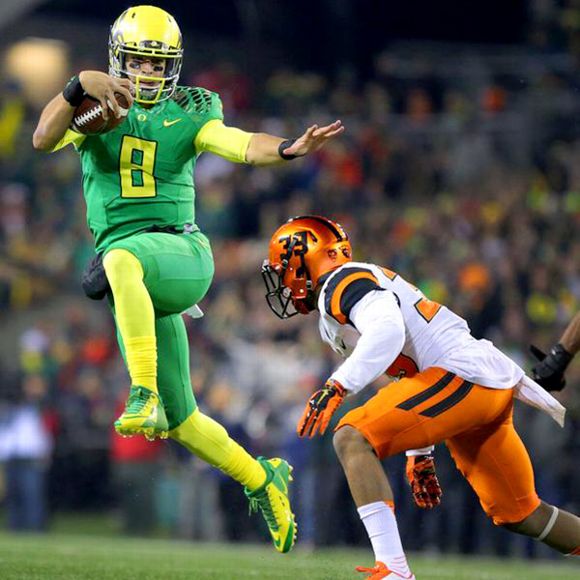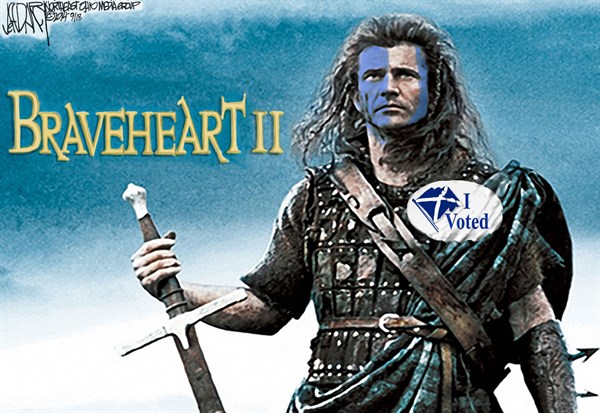The separation of church and state doesn’t mean “the government cannot favor religion over non-religion,” Supreme Court Justice Antonin Scalia argued during a speech at Colorado Christian University on Wednesday, according to The Washington Times.
Defending his strict adherence to the plain text of the Constitution, Scalia knocked secular qualms over the role of religion in the public sphere as “utterly absurd,” arguing that the Constitution is only obligated to protect freedom of religion -- not freedom from it.
“I think the main fight is to dissuade Americans from what the secularists are trying to persuade them to be true: that the separation of church and state means that the government cannot favor religion over non-religion,” the Reagan-appointed jurist told the crowd of about 400 people.
“We do Him [God] honor in our pledge of allegiance, in all our public ceremonies,” the conservative Catholic justice continued. “There’s nothing wrong with that. It is in the best of American traditions, and don’t let anybody tell you otherwise. I think we have to fight that tendency of the secularists to impose it on all of us through the Constitution.”
Link
Wow. That piece of rank ignorance came from a Supreme Court Justice. Probably a good case for injecting the label "activist Judge". The Constitution is absolutely required to protect the religious liberty of the citizen; but nowhere in our founding documents is found the enumerated power of the government to either endorse or favor religious belief.
This latest missive ties in to what I've been saying for years.....the American people have the inherent right to worship the faith of their choosing, or none at all....and this natural right is protected by the Constitution. This is not to say that violations of religious liberty do not occasionally occur, and we must remain vigilant to ensure that these abuses do no occur, and are not condoned by government. But most of the current crusades are not directed at protecting liberty, but advocating for just what Scalia proposes......government endorsement of religious belief. Or more accurately, the religious belief of those conducting the aforementioned advocating.
Case in point...public school prayer. Some believe that removing organized prayer during school hours was a violation of their religious liberty. But this was not the case. Any student or teacher may pray to their chosen deity at anytime time during the school day, provided that it does not distract from the activities or curriculum. Those who believe they have been wronged aren't advocating for the ability to pray in school [as opposed to before or after]...they desire public and government acknowledgment of their beliefs. They desire an institutionalization of their belief in an omnipotent [and invisible] creator.
Government has no mandate, anywhere, to weigh in on the validity of any religious belief. Scalia argues that the Constitution does not prohibit government from acting on this vote of validity...but he is quite obviously confused [or promoting an agenda. i.e
activism]. The Constitution, by definition,
enumerates the powers of the government. The vaunted document does not comprise of a list of "
don't's"....it is a list of "
do's". Scalia in this regard, represents how this nation and society have fallen away from adherence to our guiding laws, and into the arms of political expediency and agendas.
An astute commenter at the linked piece puts it succinctly:
"Congress shall make no law respecting an establishment of religion, or restricting the free exercise thereof."
Any public law or policy that "favors religion over non-religion" clearly violates the First Amendment.
The important point to note is in the wording of the 1st Amendment, where if it were to state "
respecting the establishment of religion", then Scalia might have a point. In that case, favoring religious belief would not be
the establishment of a government sponsored religion. But as it states "
respecting an establishment of religion", this quite clearly refers to religious belief. This states that the government does not possess the power to create law that
favors the religious over the secular.
And that's what the debate really bills down to. Some of the faithful, are not seeking religious liberty, because they already possess that. They can already exercise their natural right to worship in accordance with their faith without regulation or restriction from the government [generally speaking, and I think there is too much of this regulation to begin with]. They desire for government to codify in law, their religious belief system, at the expense of or detriment to, those who do not follow their faith or any faith at all.
Given the corrupt and corruptible nature of government, I'm at a loss as to why they would desire their faith to be bedfellows with the State. Doing so only dilutes and degrades both. I'm also perplexed as to why [predominately] Christians would favor establishing legal precedence for other belief systems....giving the bedwetting and hand-wringing over Islam.












